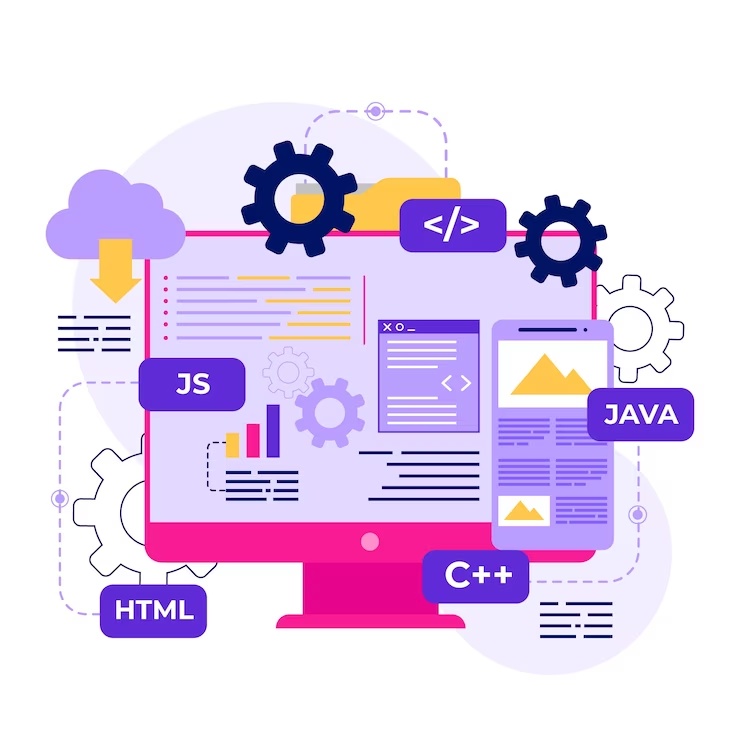When it comes to web development, there are numerous programming languages and frameworks to choose from. Among the most popular ones are JavaScript vs Ruby on Rails. Both have unique characteristics and cater to different development needs. In this article, we will compare these two tech giants and explore the situations in which each one shines.
JavaScript Vs Ruby on Rails: An In-Depth Comparison
JavaScript and Ruby on Rails are both popular technologies used for web development, but they serve different purposes and have distinct strengths and weaknesses. Let's delve into an in-depth comparison of the two:
What is JavaScript?
JavaScript, often abbreviated as JS, is a versatile and widely-used programming language. Initially designed for frontend development to add interactivity and dynamic elements to websites, it has now expanded its reach to backend development as well. It allows developers to build robust applications, making it an essential part of the modern web development landscape.
What is Ruby on Rails?
Ruby on Rails, commonly known as Rails, is a powerful web application framework written in Ruby. Developed with the principles of simplicity and productivity in mind, Rails emphasizes convention over configuration, making it an excellent choice for rapid application development (RAD). It has a thriving community and follows the "Don't Repeat Yourself" (DRY) principle, enabling developers to write clean, concise, and maintainable code.
JavaScript Vs Ruby on Rails: A Head-to-Head Comparison
Now, let's dive into a detailed comparison between JavaScript and Ruby on Rails based on various aspects:
| Aspect | JavaScript | Ruby on Rails |
|---|---|---|
| Language Type | High-level scripting language | Object-oriented programming language |
| Popularity | Widely used; dominant in web development | Highly popular for web application development |
| Learning Curve | Relatively easy to learn | Moderate; requires understanding of Ruby syntax |
| Community Support | Enormous community support and libraries | Active and vibrant community with vast resources |
| Development Speed | Fast and efficient | Rapid application development (RAD) |
| Scalability | Scalable for both frontend and backend | Scalable for web applications |
| Use Cases | Web development, mobile app development, IoT | Web applications, e-commerce, social networks |
| Frameworks/Libraries | Node.js, React, Angular, Vue.js, Express.js | Ruby on Rails, Sinatra, Hanami |
| Performance | Fast execution speed | Sufficient performance for most applications |
| Code Reusability | High reusability with libraries and modules | Encourages code reusability through conventions |
| Learning Resources | Abundance of online tutorials and documentation | Comprehensive guides and books available |
JavaScript: Harnessing the Power of Versatility
JavaScript has cemented its position as the go-to language for frontend development. With the rise of Node.js, it has extended its capabilities to the server-side as well. Some of the key points that make JavaScript a popular choice are:
- Interactivity: JavaScript allows developers to create dynamic and interactive elements on web pages, enhancing the user experience.
- Frontend Frameworks: Popular frameworks like React, Angular, and Vue.js make it easier to build complex frontend applications.
- Backend Development: With Node.js developers can use JavaScript for server-side development, providing a unified development environment.
Ruby on Rails: Empowering Rapid Application Development
Ruby on Rails shines in scenarios where quick development and maintainable code are essential. Here's why it stands out:
- Convention Over Configuration: Rails minimizes the need for explicit configuration by following a set of conventions, enabling developers to focus on building the application logic.
- Gems and Libraries: Rails has a vast collection of Gems and libraries that simplify common development tasks, making it faster to build feature-rich applications.
- Clean and Readable Code: Ruby's elegant syntax and Rails' emphasis on clarity and simplicity result in code that is easy to understand and maintain.
JavaScript Vs Ruby on Rails: When to Choose Which?
Choosing between JavaScript and Ruby on Rails depends on the nature and requirements of your project. Here are some guidelines to help you make the right decision:
-
Choose JavaScript for:
- Creating interactive and responsive user interfaces.
- Building real-time applications like chat apps and collaborative tools.
- Developing cross-platform mobile applications using frameworks like React Native.
-
Choose Ruby on Rails for:
- Rapid prototyping and MVP development to quickly validate ideas.
- Building content-heavy websites or e-commerce platforms.
- Projects where convention-based development simplifies the process.
Conclusion
JavaScript and Ruby on Rails are both powerful tools in the web development arsenal, each with its own unique strengths. JavaScript excels in frontend interactivity and can be extended to the backend with Node.js. Ruby on Rails, on the other hand, shines in rapid application development and emphasizes clean code. The choice between the two depends on the specific requirements of your project.
Remember, there is no one-size-fits-all solution, and understanding your project's needs and goals is crucial. Whether you go with the dynamic versatility of JavaScript or the rapid development capabilities of Ruby on Rails, both can lead you to success in the world of web development.
FAQs
What are the primary differences between JavaScript and Ruby on Rails?
JavaScript is a versatile programming language used for both frontend and backend development, focusing on interactivity and responsiveness. On the other hand, Ruby on Rails is a web application framework written in Ruby, emphasizing convention over configuration and enabling rapid application development.
Which one has a steeper learning curve?
JavaScript generally has a relatively easier learning curve, especially for frontend development. Ruby on Rails may require a bit more effort to grasp the Ruby language syntax and Rails conventions.
Is Ruby on Rails suitable for large-scale applications?
Yes, Ruby on Rails is scalable and has been used to build large-scale applications like GitHub, Shopify, and Airbnb. With proper optimization and infrastructure, it can handle significant traffic.
Can I use JavaScript in a Ruby on Rails project?
Absolutely! You can incorporate JavaScript into your Ruby on Rails projects to add interactivity and dynamic behavior to your web applications.
Which one has better community support?
Both JavaScript and Ruby on Rails have strong and active communities. JavaScript benefits from its extensive use in web development, while Rails has a dedicated community focusing on Ruby-based web development.
Is Ruby on Rails still relevant in modern web development?
Yes, Ruby on Rails remains relevant and is widely used in web development. Its emphasis on productivity and clean code makes it a valuable choice for many projects.


No comments yet